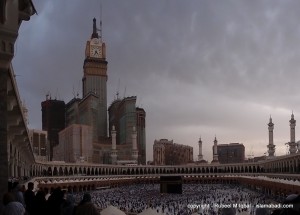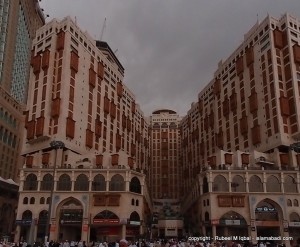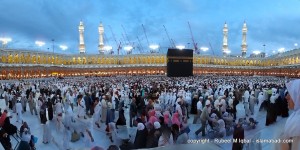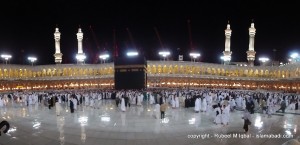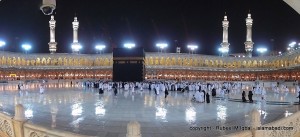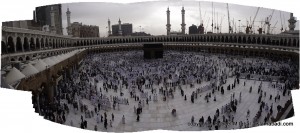I have nearly read this book and this book is a very interesting account on Hamas and its history. A must read for anyone who wants to know about Hamas.
The Martyr Who Did Not Die
By REVIEW BY GREG MYRE
Sunday, March 8, 2009
KILL KHALID
The Failed Mossad Assassination of Khalid Mishal and the Rise
of Hamas
By Paul McGeough
New Press. 477 pp. $26.95
Actuarial tables are not kind to the leaders of Hamas. The Israeli security forces reserve a special fury for the radical Islamic group, and it’s tough to be taken seriously as a Hamas leader unless you can prove that the Israelis tried to kill you at least once.
The group’s most notorious bomb maker was killed by an exploding cellphone in 1996. Its quadriplegic founder, Sheik Ahmed Yassin, was in his wheelchair on his way home from a mosque when an Israeli missile struck him down in 2004. This past New Year’s Day, a one-ton Israeli bomb flattened the apartment building that housed Hamas firebrand Nizar Rayyan, killing him, all four of his wives and 11 of their children.
Given this history, Khalid Mishal, a key figure in Hamas since the group was founded two decades ago, can consider himself very lucky indeed. His brush with death came on the streets of Amman, Jordan, in 1997, when an Israeli Mossad agent squirted an exotic poison in his ear. But the would-be assassin and an accomplice were quickly chased down by Mishal’s driver, his bodyguard and some passersby. Outraged that the attack took place on Jordanian soil, King Hussein demanded the antidote from Israel as part of the price for releasing the Mossad agents. Under U.S. pressure, the Israelis reluctantly complied.
This episode made Mishal an instant legend within Hamas. He became a martyr in a group that reveres them and did so without the inconvenience of dying. In “Kill Khalid,” Australian journalist Paul McGeough uses the botched assassination as the jumping-off point for a timely and thorough examination of Hamas, highlighting the ways in which Israel has intentionally and unintentionally aided its rise.
Mishal’s near-death experience has been well reported in previous books and articles, and this book runs the risk of being as stale as month-old hummus. But in the circular nature of the Israeli-Palestinian conflict, the same characters keep coming back around, and this 12-year-old drama couldn’t be more relevant today.
Binyamin Netanyahu was the Israeli prime minister who authorized the attempt on Mishal’s life. It proved to be a huge embarrassment, and though Hamas wasn’t part of the negotiations, the reckless Israeli action was one of a thousand cuts that drained the blood out of the peace process that had begun so hopefully with the 1993 Oslo accords.
So what’s new? Well, Netanyahu’s Likud party finished a close second in Israel’s February elections, and he has been trying to form a coalition government with himself as prime minister. If he succeeds, his most immediate security concern will be Hamas . . . led by Khalid Mishal.
Back in 1997, President Bill Clinton intervened to calm the Jordanians and contain the political damage from the attempted assassination. This past week, Secretary of State Hillary Clinton toured the region and met with Netanyahu in hopes of restarting negotiations. The cast may be familiar, but one huge difference between then and now is that Hamas is much more powerful, which will greatly complicate any peace effort.
McGeough documents how, two decades ago, Israel encouraged the development of Hamas by allowing it to establish schools, health clinics and other social services. Israel’s thinking at the time was that Hamas could serve as a religious counterweight to Yasser Arafat’s secular Fatah movement and splinter Palestinian loyalties. But once it put down roots, Hamas quickly expanded its role, moving from peace-process spoiler in the 1990s, to suicide-bombing assembly line at the beginning of this decade, to rulers of the ravaged Gaza Strip for the past three years.
For such a key figure, Mishal is not well known, even to Palestinians. He was just 11 when his family fled the West Bank in the wake of the 1967 war, and he last set foot there in 1975. After bouncing around the Middle East, he now maintains a relatively low profile in Damascus, where he lives in a guarded compound reserved mostly for Syrian VIPs and foreign diplomats. Yet as much as anyone else in the region today, Mishal is linked to all the key players. He tends to surface at vital moments — such as Israel’s assault on Gaza in December and January — and McGeough makes excellent use of him to explain the cross-currents that make the Middle East so messy.
To begin with, Mishal must negotiate the friction between Hamas “insiders,” the leaders based in Gaza, and the group’s “outsiders,” exiles such as himself. He also figures prominently in the tensions that pit Hamas against Fatah. He is a full-throated advocate of suicide bombings who issued predictably hard-line statements during the recent fighting in Gaza. Yet on those occasions when Hamas turns to diplomacy, Mishal pops up in Egypt or Saudi Arabia to guide the Hamas delegation.
He depends on Syria for his security and has links in Lebanon to Hezbollah, a group Hamas has long studied and emulated. Mishal is also on good terms with Hamas’s most important patron, Iran, which supplies cash and trains Hamas militants. In short, it’s hard to figure out the Mideast jigsaw puzzle without understanding where he fits in.
As a reporter, I covered Hamas for years, and it was always tricky gauging Mishal’s influence. His exhortations to strike at Israel certainly resonated with the radical youths in Gaza, yet at times it seemed that his perch in exile left him out of day-to-day decision-making by Hamas leaders on the ground.
But Israel has systematically killed many of those leaders, and Mishal’s prominence has grown by process of elimination. McGeough makes a strong case that, even from afar, Mishal is deeply involved in daily events in Gaza. The author was with Mishal in his Damascus compound in September 2007, when Al-Jazeera was broadcasting scenes of Hamas security forces beating Fatah protesters in Gaza. An exasperated Mishal spoke by phone to the Hamas security chief in Gaza and told him to ease up.
Far too many earnest, lumbering books on the Middle East propose recycled versions of the path to peace. McGeough doesn’t offer a solution to the conflict. But he provides a highly instructive account of how Hamas emerged as a potent force and why its faithful honor Mishal as the “martyr who did not die.”
View all comments that have been posted about this article.
© 2009 The Washington Post Company
http://www.washingtonpost.com/wp-dyn/content/article/2009/03/06/AR2009030602019_pf.html
